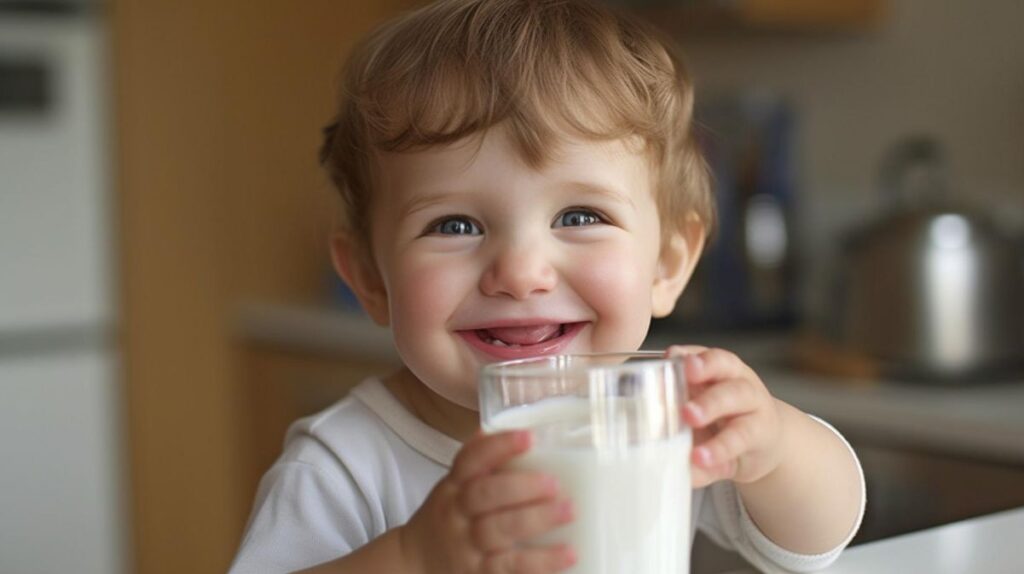Probiotics for Kids

What are probiotics?
The WHO defines probiotics as microorganisms that, when administered in adequate amounts to the patient, confer beneficial effects.
In other words, they are mainly "good bacteria" since they provide benefits to kids (also to adults) as long as they live inside the organism in adequate proportions and in balance.
What are the benefits of probiotics in kids?
In a kid's intestine, there are millions of bacteria that make up what is called the microbiota or intestinal flora. If we also consider this microbiota from a genetic point of view, we are talking about the gut microbiome.
This microbiota provides the body with numerous health benefits thanks to the synthesis of certain necessary substances that the child's body is unable to synthesize, but which, however, can be synthesized by these bacteria.
In addition, these microorganisms prevent colonization of the gut by other pathogenic species, thus avoiding the risk of infections while improving the child's defenses and boosting its immune system.
Therefore, it is very important that the intestinal microbiome of the child is in balance and in a healthy state.
But it can happen that this microbiota becomes unbalanced and that some of the bacteria present in the intestine begin to grow more than they should. This imbalance can occur, for example, after treatment with antibiotics. In these cases, it is necessary to repopulate the child's gut with the microorganisms that naturally live there, which is where the main benefit of probiotic supplements lies.
But it can happen that this microbiota becomes unbalanced and that some of the bacteria present in the intestine begin to grow more than they should.
This imbalance can occur, for example, after treatment with antibiotics. In these cases, it is necessary to repopulate the child's gut with the microorganisms that naturally live there, which is where the main benefit of probiotics lies. Here's how probiotics can benefit your child's health
Are probiotic supplements safe for kids?
Yes, probiotics are safe and effective for children as it is a product that does not usually have any side effects. However, you should choose the right probiotic for your child, the one with the best composition of probiotics that can benefit your child.
Please note that not all brands are the same and that composition, purity and potency may vary from brand to brand. It is also important to make sure that the probiotic supplement does not contain added sugar and to avoid the presence of gluten, soy or dairy derivatives that can cause some intolerances in our children.
If you have any doubts, talk with your child’s pediatrician or a healthcare professional.
What is the use of probiotic supplements in children?
Many studies have been carried out with probiotics in children, especially for the treatment of certain diseases typical of children.
In addition, given the importance of vitamins for children, many probiotic supplements incorporate essential vitamins and minerals in their formula that help strengthen your child's immune health.
Some of the diseases that can be treated with probiotics are:
- Treatment of diarrhea with probiotics.
- Constipation
- Gastroenteritis
- Inflammatory bowel disease
- Irritable Bowel Syndrome - IBS
In addition to the treatment of these diseases, probiotics are also useful for other functions such as improving the child's defenses and boosting its immune system or to repopulate the intestinal microbiota after antibiotic treatment. Let us not forget that antibiotics have the ability to destroy pathogenic bacteria, but they also kill good bacteria, thus producing an alteration of the intestinal microbiota.
Treatment of Diarrhea in kids with Probiotics
Diarrhea is probably the pathology for which most studies have been carried out to demonstrate the efficacy of probiotics in children. There are several published studies that demonstrate how the use of certain strains of probiotics minimizes the effects of diarrhea with a shorter duration and with a smaller number of bowel movements.
It is important to note that not all probiotics have this therapeutic effect in the treatment of diarrhea, not even the same species of microorganism. Generally, all the studies carried out in the pediatric population have been performed with very specific bacterial strains of certain microbial species.
According to the World Gastroenterology Organization - WGO (1), in its latest guide of February 2023, it states that, for the treatment of gastroenteritis and diarrhea in children, the probiotic strains with the greatest positive impact are Lactobacillus rhamnosus GG (a bacterium) and Saccharomyces boulardii (a yeast).
The most common probiotics in the treatment of diarrhea are Lactobacillus rhamnosus GG and the yeast Saccharomyces boulardii.
Lactobacillus rhamnosus GG is one of the bacterial strains most widely used as a probiotic and has the largest number of documented studies in the prevention and treatment of diarrhea and gastrointestinal infectious processes.
On the other hand, ESPGHAN (2) in its 2014 report agrees with WGO in the therapeutic evidence in the use of Lactobacillus rhamnosus GG and Saccharomyces boulardii, although ESPGHAN also includes Lactobacillus reuteri, specifically, strain DSM 17938 for the treatment of this diarrhea in children.

What are the best probiotics for kids?
If you want to see a selection of the 15 best infant probiotics for children, click here.
